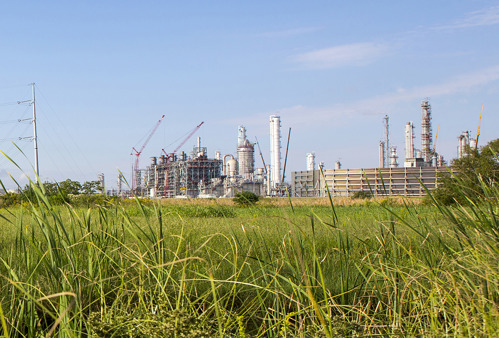BASF launches ChemCycling in the U.S.
- BASF processes feedstock from plastic waste at Port Arthur, TX facility
- Innovative solution promoting a more circular economy available in U.S.
- Ccycled products offer the same properties as conventional products made from fossil resources
PORT ARTHUR, TX, February 21, 2024 – For the first time, BASF brings Ccycled® products manufactured in the U.S. to the market using feedstock from plastic waste. Leveraging its global expertise in ChemCycling®, BASF is offering customers ISSC+ certified advanced recycled building blocks from the BASF TotalEnergies Petrochemicals (BTP) facility in Port Arthur, Texas. ChemCycling utilizes recycled feedstock that is derived from plastic waste in the conventional production process, thereby partially replacing fossil resources.
The recycled feedstock is attributed to the advanced recycled building blocks via a mass balance approach. These building blocks can be used for many BASF products manufactured in the U.S., for example super absorbent polymers, engineered plastics or polyurethanes.

“As a pioneer in the industry for advanced recycling, BASF is building on its experience, innovative strength and great partnerships along the value chain to create a more circular economy for plastics,” said Dr. Gulay Serhatkulu, Senior Vice President Petrochemicals, BASF North America. “By using recycled raw materials at the beginning of the chemical value chain, plastic waste becomes a resource, creating value for the environment, society and the economy.”
Each year, less than 9% of plastic waste is recycled in the U.S. By establishing advanced recycling as a complementary solution to mechanical recycling, it is possible to utilize more plastic waste, particularly plastics that cannot be recycled mechanically for technological, economic, or ecological reasons. These include plastics with residues and mixed plastic waste fractions, which would otherwise be landfilled or incinerated.
“We are excited to highlight this new local production to our customers. New products from advanced recycling have the same properties as products using fossil-derived building blocks,” said Johanne Wilson, Business Development Manager for ChemCycling at BASF. “Our customers can process Ccycled products in the same way as conventionally manufactured products for use in their downstream businesses including high-performance packaging and demanding applications such as automotive or construction.”






Comments